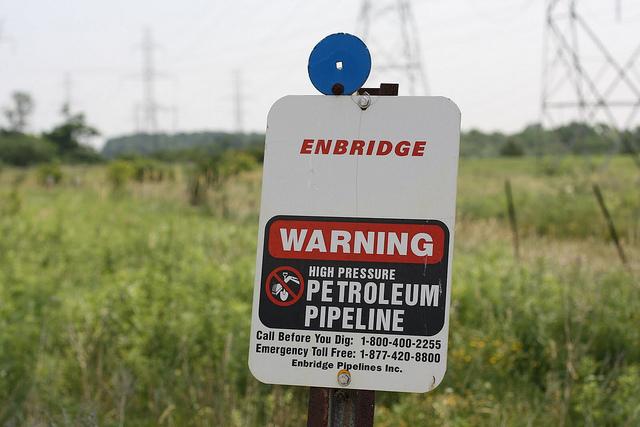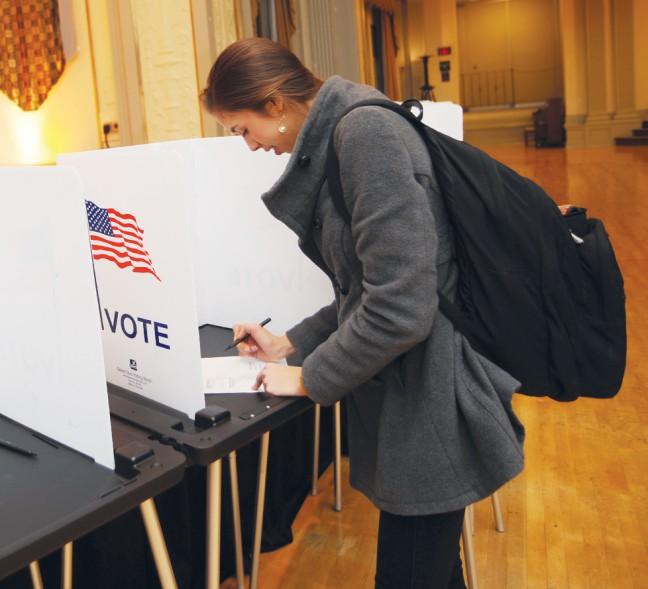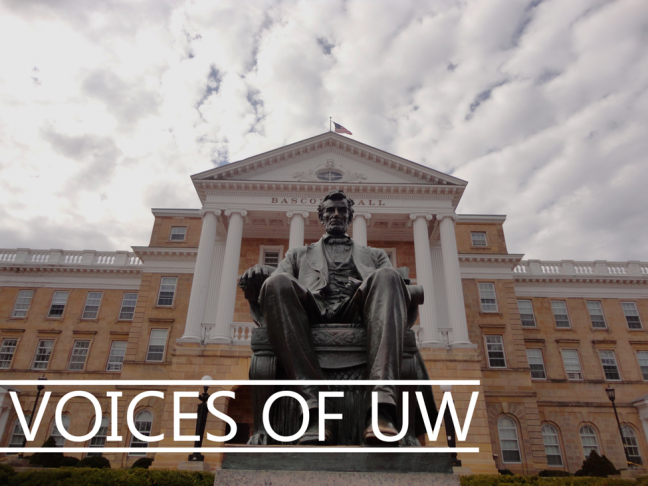Wednesday’s edition of The Badger Herald printed the opinion piece, headlined “Acceptance of sexually violent language degrades us all,” with an important central message: Derogatory, sexually-explicit language should be avoided at all costs due to its disregard for human dignity and the violence it perpetuates. A couple pages later, in the same issue, was a regularly-published non-editorial Herald column on porn (“Face in the Crowd: Student thoughts on porn”), the contents of which contained suggestive remarks similar to those condemned by the preceding article. The juxtaposition of these two articles raises a serious issue, and I do not believe it can be overlooked.
Let me begin by noting that my intention here is to reflect only on the contents and implications of the aforementioned articles; my judgment rests only on the issues raised by my fellow Badgers and not on the authors or interviewees themselves.
I see an important truth in the first article’s claim that sexually-degrading vocabulary fundamentally and wrongly objectifies other people. While one may claim such language is empty or little more than a slip of the tongue, we cannot expect ourselves to fully recognize another person’s value if we permit our everyday speech to disregard it.
Bearing this in mind, I turn now to a new question – one prompted by the recent juxtaposition of this linguistic argument with a series of casual interviews about porn. The question is this: Doesn’t porn have the same harmful effect on people and their personal dignity as derogatory, sexual language?
If we watch others engage in sexual activity for our own pleasure or instruction, are we not using these individuals and their bodies to gratify our own desires and emotions, which may in turn prompt us to objectify our peers? The question I have just asked is not an easy one, and yet, in a culture where sexual violence is tragically common, I believe it must be asked. And that the answer is “yes.”
Every person has inherent dignity – a reason and intellect, the free will to choose right over wrong and a capacity to love, all of which command and deserve respect. We are more than our bodies and deserve to be valued as such. Porn, however, invites us to view another’s body for our own pleasure; we do not see people for who they truly are, but for their body type, their actions or the way they make us feel.
We objectify, and we judge. If we willingly and pleasurably view someone in a photograph or on film as a sexual object, moreover, nothing prevents us from doing the same to our peers, whether consciously or unconsciously – and I think it’s safe to say that none of us want to be subject to such objectification as we walk down Bascom Hill or attend class. Porn is another ingredient in the tragedy of sexual violence and sexually violent language that currently plagues our society, and only by recognizing it as such can we take the proper steps to reduce this violence and restore worth and value to those around us.
We are more than images or icons, and we have the power to recognize the same uniqueness and dignity in others that we value in ourselves. We can learn to love others, but only if we look past their bodies to see and appreciate their intrinsic worth.
Amanda Detry ([email protected]) is a senior majoring in English and History.











